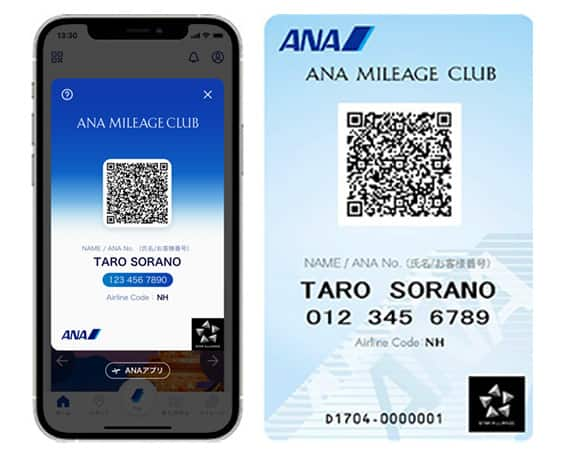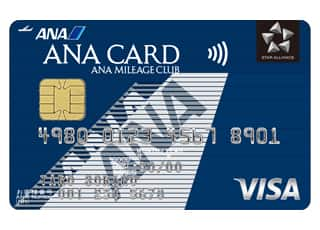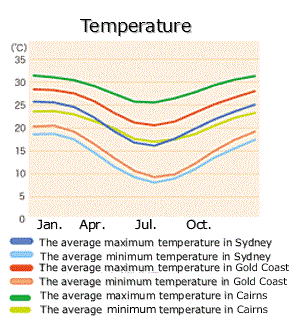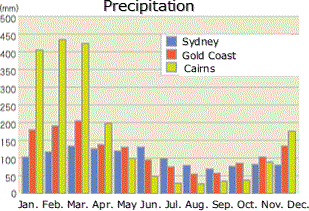- Please select the card you wish to join
-

Get your digital card immediately
No enrollment or annual fees
ANA Mileage Club Card
Earn more miles for your money
With credit function
ANA Card
-
Reservations
-
MILES
-
MILES
-
Login
-
Support
Sydney
on June 30th, 2025 (JST) current information
Immigration and Visa
Visa
Japanese citizens require either a visa or ETA registration through the Australian ETA app to enter Australia.
ETA app:
Passport
Your passport must be valid until the time you return to Japan.
Airport taxes
When departing Australia by air, the Passenger Movement Charge (PMC) of AUD 70, as well as various airport charges specific to each airport, are generally included in the cost of the airline ticket at the time of purchase.
Quarantine
When visiting from Japan, it is prohibited to bring the following items into Australia.
Australia is far from the other continents and has many unique species of plants and animals. For this reason, quarantine is extremely strict and there are very detailed regulations for bringing in foods, plants, and animals. The following is a list of typical items that are not permitted to bring into the country. For details, see Australian Quarantine and Inspection Service website (https://japan.embassy.gov.au/tkyojapanese/quarantine_jp.html).
Some items may be brought in if declared.
- a. Eggs (raw, boiled)
Raw and boiled eggs are prohibited. Some processed products are allowed. - b. All fruit and vegetables
- c. Live animals
However, you can apply to the agriculture ministry website directly (in English) for cats and dogs to bring them in after completing a certain length of animal quarantine. Check about guide dogs. - d. Meat and meat products
Canned, boil-in-the-bag, and bottled products with a shelf life of 6 months or more are permitted. Products containing meat extracts or bouillon (such as curry and stew roux) are allowed if they do not contain meat pieces or animal-derived edible fats (such as beef tallow or lard). Also, dried meat products like jerky produced in Japan (commercially manufactured and long-term room temperature storage products) are permitted for personal consumption up to 1 kg. Other meat products, whether raw, frozen, smoked, salted, preserved, or cooked, are prohibited in any form. - e. Fish
Non-salmonidae fish and fish products are allowed up to 5 kg if the head and internal organs are removed, the product can be stored at room temperature (does not require refrigeration or freezing until opened), and is confirmed to be used only for food (not for animal feed). Even for small fish like dried sardines, if the fish or fish product has the head and internal organs, an import permit must be applied for and obtained in advance. Commercially produced and sufficiently sterilized canned, boil-in-the-bag, and bottled salmonidae fish products are permitted. Fish eggs such as mentaiko and caviar are allowed if they are commercially manufactured and packaged (unopened), except for salmonidae fish. Fish-based seasonings like granular or powdered dashi are also permitted. - f. Dairy products
From Japan, personal use permits solid dairy products up to 10 kg, liquid dairy products up to 10 L, liquid concentrates up to 2 L, and dried foods up to 2 kg. Additionally, when accompanied by an infant, pre-mixed bottled milk and one opened baby food item are allowed. - g. Seeds and nuts
Raw (unprocessed) nuts that are commercially packaged and have had their shells removed are allowed up to 2 kg. - h. Vegetables, fruits, and grains
Raw and frozen (uncooked) fruits and vegetables are generally prohibited. Dried fruits and dried processed vegetables that do not contain seeds, roots, or skins are permitted if declared and pass inspection. - i. Live animals
Cats and dogs can be brought in by applying directly to the agriculture ministry website (in English) and completing a certain period of animal quarantine. Check about guide dogs. - j. Live plants
Cut flowers, roots, bulbs, live fruits, rhizomes, stems, plants with reproductive ability or parts thereof, and seeds for cultivation have individual import conditions based on the type of plant and part, and the intended use. Check with the Australian Department of Agriculture and Water Resources for details (https://www.agriculture.gov.au/about/contact/online-enquiry). - j. Products made from animals
Products made from animal skins, bones, fur (including unprocessed wool), taxidermy, feathers, and shells (e.g., ornaments, artwork, drums, shamisen, honeycombs, etc.) must be declared. - k. Products made from plants
Products made from bee products and straw, bamboo skin packaging, wooden products, artworks, crafts, wooden tableware, wreaths (leis, etc.), products stuffed with plant seeds or straw, dried flowers, and potpourri must be declared. Dried flowers are permitted if they contain only permitted plant species. - l. Soil and sand
Soil (including products containing soil) is generally prohibited. Sand, rocks, and fossils are permitted if they are free from soil, insects, and plant or animal-derived substances, and are confirmed to be composed only of inorganic material.
- If it is difficult to judge if an item can be brought in, always declare it. Violations will result in not only confiscation and fines, but also, in the worst case, denied entry and refusal to perform new ETA registration or issue new visas for three years after the incident.
Customs
Visitors will not be taxed for bringing in commodities for non-commercial use carried on hand or in hand luggage, sports goods for personal use, up to 25 grams of tobacco and one opened box (over 18 years old adults only), up to 2.25 liters of alcohol (adults only), or $900 worth of general goods (e.g. gifts, leather products, electronic devices, cameras, or jewelry).
Bringing in e-cigarettes
In Australia, electronic cigarettes are not common, and purchasing them domestically requires a prescription from a doctor as they are treated as medicinal products. Travelers can bring vape-type electronic cigarettes, with up to two vapes, 20 vape accessories (such as cartridges), and up to 200ml of vape liquid tax-free. There are no clear regulations regarding heated tobacco products, but since they are considered medicinal products, you must declare them at customs upon entry (the allowable amount will be determined during the customs inspection, taking into account factors such as the length of stay). However, to avoid unnecessary trouble, it is best not to bring them at all.
Time difference and Daylight Saving Time
Time difference
Australia generally has three time zones. The time difference is +1 hour between the states on the east coast (add 1 hour to Japan time). Central Australia has a -30 min. time difference with the east (add 30 min. to Japan time). The west (Western Australia) has a -2 hour time difference with the east (subtract 1 hour from Japan time). In addition, Daylight Saving time is in effect generally from the first Sunday of October to the first Sunday of April in New South Wales, Victoria, the Australian Capital Territory (Canberra), Tasmania, and South Australia. Add an extra hour to the time for these states and territories during this period. Note that the adoption and period of Daylight Savings time is determined by each state/territory each year, and you should check in advance the terms for that year.
Climate
Climate
Australia is very large and has a range of climates. In general, the north coast is a tropical zone and is divided into a rainy season and a dry season, central and south coast is a temperate to cold temperate zone with four season, and the central part of the continent has a dry desert climate. The sun is very strong throughout the year, so sunglasses and sunscreen are essential.

Mean annual temperature for Sydney, the Gold Coast, and Cairns

Mean annual rainfall for Sydney, the Gold Coast, and Cairns
-
Monthly average temperature and precipitation
The average maximum temperature in Sydney and Gold Coast and Cairns, The average minimum temperature in Sydney and Gold Coast and Cairns
month The average maximum temperature in Sydney The average minimum temperature in Sydney The average maximum temperature in Gold Coast The average minimum temperature in Gold Coast The average maximum temperature in Cairns The average minimum temperature in Cairns Jan. 26℃ 19℃ 28℃ 20℃ 32℃ 24℃ Feb. 25℃ 19℃ 28℃ 20℃ 31℃ 24℃ Mar. 25℃ 17℃ 27℃ 18℃ 30℃ 23℃ Apr. 23℃ 15℃ 26℃ 17℃ 29℃ 22℃ May 20℃ 11℃ 23℃ 12℃ 28℃ 20℃ Jun. 17℃ 9℃ 21℃ 9℃ 25℃ 18℃ Jul. 16℃ 8℃ 20℃ 9℃ 25℃ 17℃ Aug. 17℃ 9℃ 21℃ 10℃ 26℃ 18℃ Sep. 20℃ 10℃ 23℃ 11℃ 28℃ 19℃ Oct. 22℃ 14℃ 25℃ 15℃ 29℃ 20℃ Nov. 24℃ 15℃ 26℃ 18℃ 30℃ 22℃ Dec. 25℃ 19℃ 28℃ 19℃ 31℃ 24℃ The average precipitation in Sydney and Gold Coast and Cairns
month The average precipitation in Sydney The average precipitation in Gold Coast The average precipitation in Cairns Jan. 100mm 180mm 400mm Feb. 120mm 190mm 430mm Mar. 140mm 200mm 420mm Apr. 130mm 140mm 200mm May 120mm 130mm 100mm Jun. 140mm 100mm 50mm Jul. 100mm 80mm 30mm Aug. 70mm 50mm 30mm Sep. 60mm 60mm 40mm Oct. 70mm 80mm 40mm Nov. 80mm 100mm 90mm Dec. 80mm 140mm 170mm
Currency and Exchange Rate, Tax, Currency exchange, Tip
Currency and Exchange Rate

Since 2016, banknotes have successively been updated with new designs that include a watermark in the center (the photo shows the new designs).
Starting in 2016, bills are gradually being replaced with designs that have a clear window in the center.
The unit of currency is the Australian dollar (denoted A$) that is divided into Australian cents (denoted A¢). (This website uses only $ and ¢ for notation.) Banknotes are available in $5, $10, $20, $50, and $100 (all are made of polymer) and there are six types of coins: 5¢, 10¢, 20¢, 50¢, $1, and $2. $1 = 100¢. As of June 30th, 2025, $1 was equivalent to 94 yen. Following the death of Her Majesty Queen Elizabeth II, the face side of coins will gradually change to an effigy of Charles III. The design of the $5 note is scheduled to change to a motif that is based on First Nations peoples' connection to the country.
Tax
A consumption tax of 10% called GST is added to almost all products in Australia. Visitors can have this tax refunded by completing a procedure at the TRS booth at the airport upon their return if they leave Australia within 30 days, the products are taken from the country unused as hand luggage, and purchases are at least $300 in total at each store.
Tip
Although there is no set custom for tipping in Australia, it is common to provide a tip when receiving special assistance at a high class hotel or restaurant in cities such as Sydney, Perth, Melbourne and Brisbane.
- Taxis: When paying in cash, you round the fare up. This does not apply when paying by credit card. If the driver helps when loading and unloading your luggage, tip slightly more.
- Restaurants: Tip about 10 to 15% at high class restaurants if there is no service charge included in the price. Pay a tip by adding the amount to the total on the pay slip yourself.
- Hotels: Tip about $2 to 5 when receiving room service or another special service.
Voltage and plug
Voltage

The voltage is 220/240 V and the frequency is 50 Hz. Use type O plugs. As it uses a high voltage, you must press a switch on the outlet for electricity to turn on. When using Japanese electrical products, check the voltage range of the product. If it is not compatible with voltages up to 240 V, use a converter. You will always need to use a converter plug.
Video and DVD
Video and DVD
In Australia, the DVD region code is 4 and Blu-ray region code is B. The DVD and Blu-ray region codes differ from those of Japan. Most media purchased in Australia cannot be played on regular Japanese devices.
The post office, Australia Post, is identified with a "P" mark in red. The counter is open from 9:00 to 17:00 on weekdays and is closed on weekends and holidays (although some post offices in major areas are also open on Sat. morning). Postage stamps are available at post office counters and also at stamp vending machines installed in certain post offices. Airmail to Japan takes 5 to 7 days. Parcels up to 20 kg each are OK.
Postal fees
Fees for airmail to Japan : For letters (including postcards), $3.30 up to 250 g and $11.15 up to 500 g.Greeting Card (dimensions within 260mm x 360mm, thickness within 5mm, weight up to 50g): A$3.00
Phone Call
How to phone
Telephoning Japan from Australia
Telephoning Japan from Australia
Ex. When calling (03)1234-5678
0011 (International telephone identification number)
81 (Country Code, Japan)
3 (Remove the first 0 for area codes and mobile telephone numbers)
1234-5678 (Other parties telephone No.)
Telephoning Australia from Japan
Telephoning Australia from Japan
When calling Cairns (07)1234-5678
Call the number of an international phone company
- 0033 (NTT Communications)*1
- 0061 (Softbank Telecom)*1
- Not required on a mobile phone
010 (International phone code)*1
61 (Australia phone code)
7 (remove the first "0" from the area code)
1234-5678 (Other parties telephone No.)
- *1.On a mobile phone, instead of 010, hold down 0 until + appears, then add the country code and the phone number.
- *1.Pre-registration to World CALL is required for NTT DoCoMo.
Holiday / National holiday
Holiday / National holiday
Holidays with dates that vary by year are marked with an *1. If holidays with predetermined dates fall on a weekend, Monday is generally a public holiday for a three-day weekend. Check the website of the Australian embassy for details.
2025
- January 1: New Year’s Day
- January 27: Australia Day (national day of Australia)*4
- March 3: Labour Day *3
- April 18: Good Friday*1
- April 19: Easter Saturday*1
- April 20: Easter Monday*1
- April 25: Anzac Day
- June 2: Western Australia Day *3
- June 9: King’s Birthday (2025). The second Monday in June every year (First Monday of October in Queensland and last Sunday of September in Western Australia)*1
- August 4: Bank Holiday *2 (First Monday in August each year)
- October 6: Labour Day *2 (First Monday in October each year)
- December 25: Christmas Day
- December 26: Boxing Day (Proclamation Day in South Australia)
- *1.National holidays in Australia that fall on different days depending on the year
- *2.Holiday in New South Wales, where Sydney is located
- *3.Holidays observed in Western Australia, where Perth is located
- *4.Australia Day is typically observed on January 26, but in 2025, the public holiday falls on January 27 as January 26 is a Sunday.
- There are also other holidays that vary by state.
Language
Language
The official language is English.
Business hours, etc
Business hours
Below are guidelines for general business hours.
General business and government offices
Weekdays 9:00 to 17:00.
Banks
Mon. to Thu. 9:30 to 16:00, Fri. 9:30 to 17:00.
- Some banks open at 9:00.
Post Office
Weekdays 9:00 to 17:00.
- In the city center, some post offices are open on Sat. mornings.
Shops
Generally 9:00 to 17:30 on weekdays. In Cairns, the Gold Coast, and other prime tourism locations, many shops are open 365 days a year, and some souvenir shops stay open until past 21:00. In major cities, there is a late night shopping day once a week during which most shops stay open until 21:00.The late-night shopping day in central Sydney is Thursday, while in central Perth it is Friday.
Restaurants
Lunch is from 12:00 to 14:30 and dinner from 18:00 to 22:00.
- varies with the shop.
Age Limit
In Australia, those 18 years old or younger cannot purchase alcohol or tobacco. Younger adults who wish to purchase these products sometimes require you to show ID, so do not forget your ID if you plan on purchasing them. There are age limitations when renting vehicles as well (some companies only rent to those between 25 and 60) and a credit card is required instead of ID. If you do not have a credit card, you will need to leave a large deposit.
Manners
On escalators, stand on the left and leave the right open. When standing in line, stand single file and move ahead in turn. To hail a taxi, put your arm out to the side.


